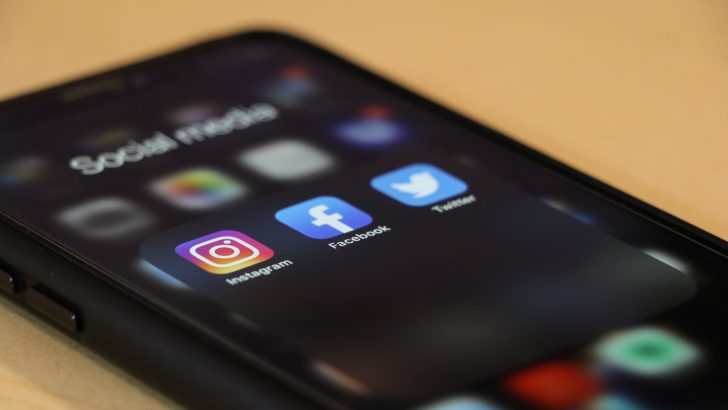The power tech corporations wield over expression ought to inspire debate, writes Jason Osborne
The beginning of 2021 has seen a number of unprecedented events: the storming of the US capitol, and the banning of then-US president Donald Trump from all social media platforms, such as Twitter, Facebook, Snapchat, Instagram and TikTok foremost among them.
Both are worthy of consideration, but the largest debate has since centred around the seemingly permanent suspension of the former US president from what has effectively become the public square, and whether or not the tech giants were right to do so. Questions have naturally been raised as to whether this constitutes an assault on freedom of expression, and just how much power these organisations ought to hold over their users.
Conspiracy theory
Aside from Mr Trump’s suspension, tens of thousands of mainly conservative accounts have also been closed under the same justification, with tech leaders pointing to these accounts as proliferators of unfounded conspiracy theory. It has not been limited to conservative profiles however, with ‘Antifa’-linked, or radical left-wing, accounts suffering suspension in recent days too.
Taking to his own platform to share his reasoning, Facebook’s CEO Mark Zuckerberg said that they had allowed the outgoing president to use their platform consistent with their rules, removing his posts when they violated their policies. They did this, Mr Zuckerberg claims, because they believe at Facebook that “the public has a right to the broadest possible access to political speech, even controversial speech”. However, they now deem that the current context is different, claiming their platform was used to “incite violent insurrection” against a rightfully installed government.
“We believe the risks of allowing the President to continue to use our service during this period are simply too great. Therefore, we are extending the block we have placed on his Facebook and Instagram accounts indefinitely and for at least the next two weeks until the peaceful transition of power is complete,” Mr Zuckerberg’s post concluded.
He suggested users who do not agree with their rules and enforcement avail of another internet service”
Similarly, CEO of Twitter, Jack Dorsey aired the thinking behind his platform’s decision in a series of tweets, saying he does not celebrate or feel pride in having to ban Mr Trump from their platform, but said that they stood by their decision as it was based off the best information they had “based on threats to physical safety both on and off Twitter”.
In the same thread, Mr Dorsey admitted that while he stood by the decision, it still “sets a precedent I feel is dangerous: the power an individual or corporation has over a part of the global public conversation”. He suggested users who do not agree with their rules and enforcement avail of another internet service.
Many users did just that, retreating to an app, Parler, that was subsequently shut down and blocked off by the dominant tech companies such as Amazon, Apple and Google, and has seen its requests for reinstatement stymied.
It is not just politics that has seen bans and suspensions applied; the London-based talkRADIO was removed from YouTube because some of its hosts and guests “explicitly contradict expert consensus from local health authorities or the World Health Organization”.
Most recently, Google threatened to block Australians from using the search engine and its features unless the Australian government reversed its legislation that would see Google forced to pay news outlets for their content. While it is a different kind of issue to that which saw the former US president and many of his followers banned, it’s still a clear picture of the kind of power the so-called ‘silicon valley’ organisations hold.
Australian Prime Minister Scott Morrison has so far refused to yield to “threats” from the tech company, telling reporters “Australia makes our rules for things you can do in Australia. That’s done in our parliament”.
However, society needs to be ready to have the debate about how much power it’s willing to afford tech companies”
A month into 2021, many suggest that these events have cast a light onto the fact that much of today’s discourse and online engagement is entirely dependent upon the goodwill of a handful of extraordinarily powerful companies.
Author and journalist Douglas Murray pointed out in an article for the online publication UnHerd that the key tech giants – Google, Facebook, Twitter, Amazon and Apple – now have more control over information “than any group of people in history, and by some distance”, presiding over an “information explosion that makes Gutenberg look like a mundanity”.
Much of the justification given, as with CEOs Mark Zuckerberg and Jack Dorsey, is based upon the threat of real-world violence or harm as a result of the speech and ideas shared on their platforms. Arguments such as these are used to justify the notion of ‘de-platforming’, which sees people’s access to megaphones for their ideas, such as Facebook and Twitter, restricted because of their perceived controversial or harmful views. Evidence in favour of this strategy is to be seen in the 2016 study that showed de-platforming Islamic extremists from Twitter made it harder for them to radicalise and recruit for their cause.
Society
However, society needs to be ready to have the debate about how much power it’s willing to afford tech companies. The reduction of violence and unfounded conspiracy theory is a right and just goal to aim towards, but little conversation has thus far been had around the hands that wield the power. The power to ban and suspend human voices at will rests in human hands as never before, and while the powers that be may be aimed in the right direction at any given time, they need not always be. Humans are fallible and changeable creatures, and there’s no guarantee our actions or their justifications will always be righteous.



